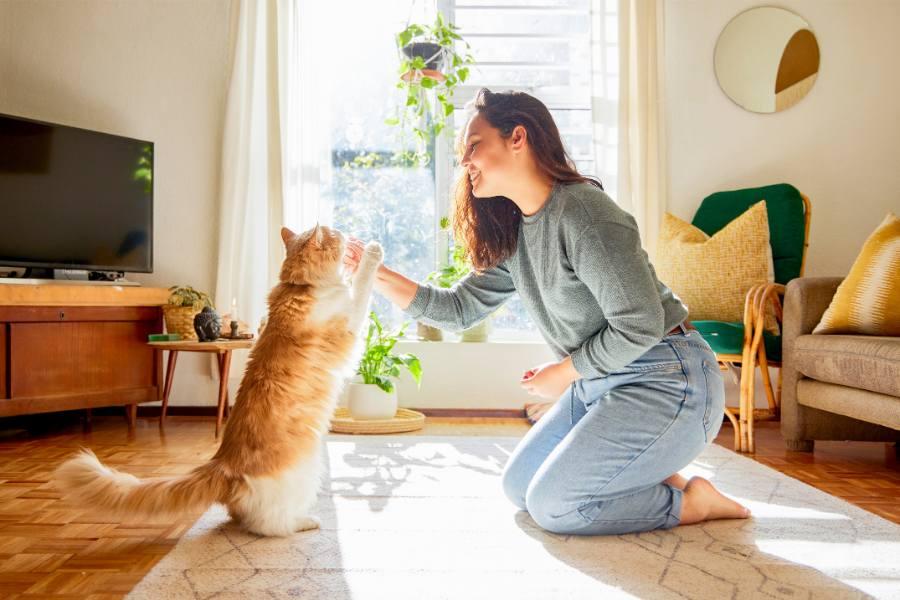Can Cats Eat Potatoes, Mashed Potatoes, Raw Potatoes, Cooked Potatoes?
Potatoes are a staple in households across the world, come in various forms and shapes, and can be turned into many tasty delicacies! Not only are potatoes tasty, but they are also nutritious and versatile.
You may have had the experience of preparing delicious mashed potatoes for yourself, only to wonder if you can offer some to your feline companion as well. Plus, we adore potatoes so much, that it's natural to be curious if we can get our little fur babies to adore them too. Nothing like some company while eating our favorite dishes, right?
Down below we will answer all your questions about cats and good ol' potatoes.
Can Cats Really Eat Potatoes?
Yes, but only occasionally. That’s the key. You can feed a little bit of potato to your kitty every now and then, but your cat is an obligate carnivore which means they rely almost completely on animal protein to fulfill their nutritional requirements. So don't get your hopes up too much - your kitty probably doesn't need a helping of potatoes at all.
But, if your cat does show some interest in trying potatoes, you can offer them a little piece - but only give them peeled and roasted potatoes, without any added oil, salt, or spices. Basically, it’s best to keep it plain and simple.
Moreover, don't forget that potatoes are extremely starchy and high in carbohydrates. So, if your cat is a bit plump, or you're worried about a condition like diabetes, the best advice would be to steer clear of feeding your cat potatoes altogether. Here is a list of a few other vegetables cats can eat.
Can Cats Eat Mashed Potatoes?
That depends on the way you like to prepare your mashed potatoes. Generally, mashed potatoes have ingredients including dairy products, salt, garlic, and onions. Let's review these ingredients one by one and review if they are safe for your cat.
Dairy: Mashed potatoes tend to have a lot of dairy - sour cream, lots of milk, and generous amounts of butter are found in many of the recipes. But did you know that your feline buddy is mostly lactose intolerant? So, all these ingredients, albeit yummy, can give them stomach troubles and diarrhea. Plus, ingredients like butter contain a lot of fat, which definitely isn’t ideal for your fur baby’s health.
Salt: We may need sodium in our diets, but cats simply don't need as much sodium as we do. Did you know that there is such a thing as sodium poisoning? Your kitty-cat can become sick from just one gram (less than a teaspoon) of salt. Sodium poisoning can lead to seizures, vomiting, lethargy, dehydration, and tremors in your cat among other scary side effects.
Garlic and Onions: Seasoning, especially ingredients related to garlic, onions, chives, leeks, and the like are incredibly toxic to your cat. Moreover, just a few grams of garlic can lead to irritation, vomiting, and diarrhea – best practice is to keep your cat away from it. Even if your mashed potatoes only have a tiny amount of garlic, it's better to be cautious and not share any with your kitty.
Long story short - mashed potatoes should be kept away from your cat at all times.
Can Cats Eat Raw Potatoes?
Please do not try this at home. Cats shouldn't eat raw potatoes. And we mean, at all! Raw potatoes contain a toxic substance called solanine, that's extremely poisonous to cats. So much so that if you even suspect that your cat has consumed raw potatoes or raw potato peels, contact your vet right away - and please gauge for signs of solanine intoxication. Symptoms include lethargy, diarrhea, and vomiting.
How Can I Offer Potatoes to My Cat?
Well, if your cat is interested in tasting potatoes you can give them a little bit to try, if you do it right. Here's how to prepare potatoes so they are safe to share with your cat:
Wash the potatoes really well.
Remove the peel (every bit of it!)
Cut off any discolored or green parts (don't forget - they may contain solanine).
Chop the potatoes into bite-sized pieces.
Roast or boil the potatoes, without any additional ingredients such as oils or seasonings (not even salt!).
Try offering some to your cat, but only after you've made sure that the pieces have cooled down.
It's important to check how your cat reacts to the cooked potatoes, especially if it's the first time you're offering it to them. Watch out for any signs of any discomfort, tummy upset, or lethargy, and if you notice anything unusual, - call your vet immediately.
How Can Spot Pet Insurance Help?
At Spot Pet Insurance, we offer customizable accident and illness or accident-only plan options, providing pet parents with additional financial support to cover the eligible costs of high vet bills. With a Spot Cat insurance plan, you can choose the deductible, reimbursement rate, and annual limit for your plan from a range of options, including an unlimited annual limit plan with no per-incident caps. Pet parents can get up to 90% cash back on eligible vet bills. Pet parents also receive access to a 24/7 Pet Telehealth helpline, so you can reach out to a veterinary professional any time you have a question about your pet’s health or behavior. Chat or speak with a veterinary professional anytime you have any doubts about what to feed your cat.
Final thoughts?
Mashed potatoes are not a great treat idea. Raw potatoes can be a bit disastrous. But a bit of plain, unseasoned, cooked potatoes could potentially work. It's best to give it a trial run to see if potatoes even appeal to your cat at all. But don't be surprised if they don’t!
The information presented in this article is for educational and informational purposes only and does not constitute or substitute for the advice of your veterinarian.
